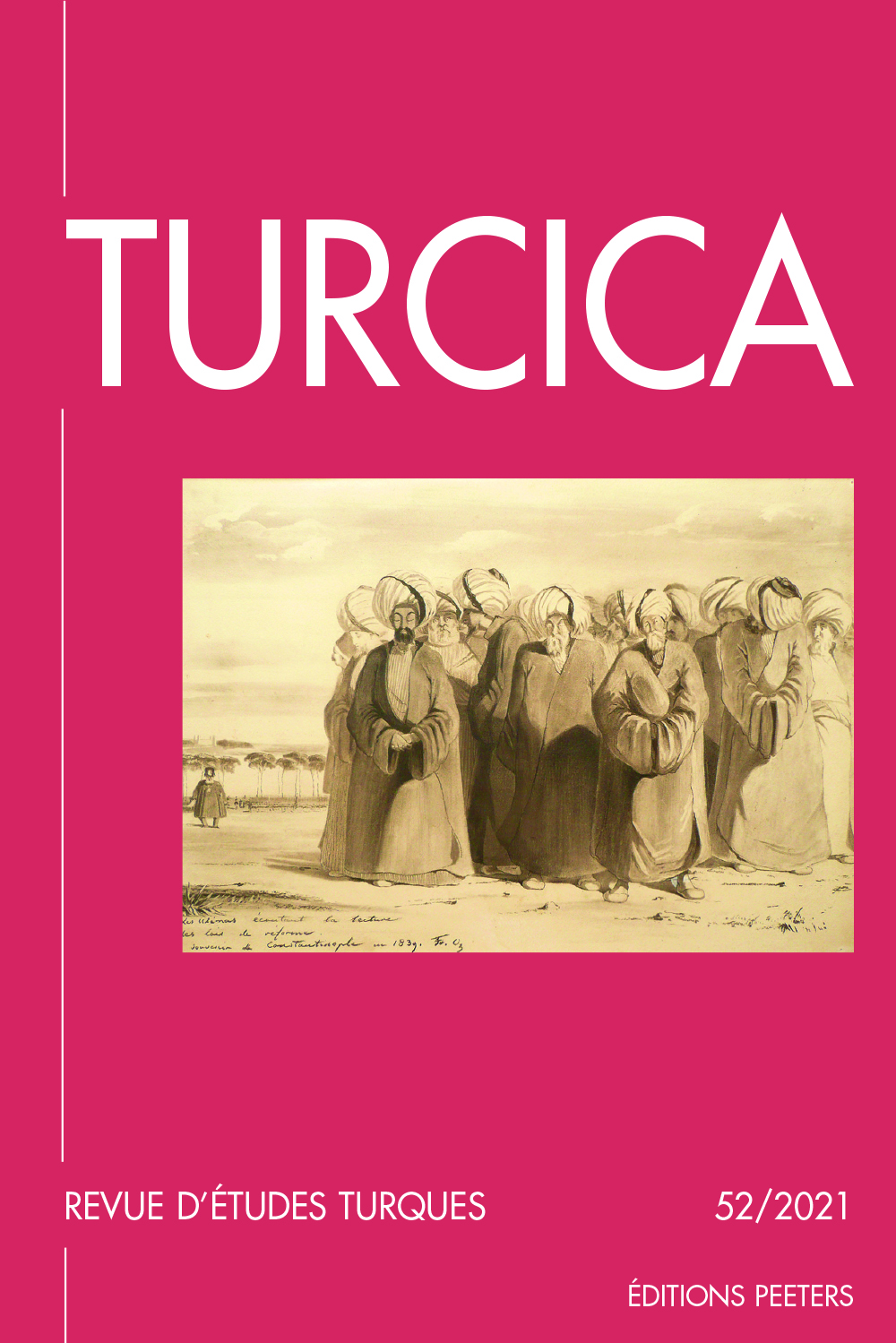 previous article in this issue previous article in this issue | next article in this issue  |

Preview first page |
Document Details : Title: Les notables laïques et le patriarcat œcuménique après la chute de constantinople Author(s): ZACHARIADOU, Elisabeth Journal: Turcica Volume: 30 Date: 1998 Pages: 119-134 DOI: 10.2143/TURC.30.0.2004210 Abstract : Élizabeth A. ZACHARIADOU, Les notables laïques et le Patriarcat œcuménique après la chute de Constantinople À la fin du XIVe siècle, lorsque la capitale byzantine devint un îlot au milieu des territoires conquis par les Turcs, le Patriarche œcuménique eut des difficultés à percevoir les revenus du patriarcat dans les anciennes provinces byzantines. Pour arriver à ses fins, il fut obligé d’avoir recours à des laïcs qui parfois exigeaient une rémunération en argent considérable en échange de leurs services. La participation des laïcs (que les sources appellent «archontes») dans les affaires du patriarcat devint plus importante après la chute de Constantinople. Deux archontes dans l’entourage du sultan, les secrétaires de Mehmed II, Dèmètrius Apokaukos et Thomas Katabolènos, jouèrent un rôle décisif dans la restauration du Patriarcat œcuménique. Depuis lors, plusieurs archontes influencèrent l’élection et l’ascension au trône des patriarches. Les conséquences de leurs interventions dans les affaires du Patriarcat sont ambivalentes. D’une part, ils profitèrent des privilèges du Patriarcat pour agrandir leurs fortunes ou pour satisfaire leurs ambitions. D’autre part, grâce à leur attachement à 1a foi orthodoxe et à 1a tradition hellénique, ils contribuèrent à la survie de l’Hellénisme. Elizabeth A. ZACHARIADOU, The Laymen and the Patriarchate after the fall of Constantinople When at the end of the fourteenth century the Byzantine capital was surrounded by territories controlled by the Ottomans, the Patriarch of Constantinople met great difficulties in order to collect the taxes from the old Byzantine provinces He was obliged to ask for the help of laymen living in the Turkish territories, who often demanded important sums of money to carry out the collection. The participation of laymen or, according to the sources, archontes, in the affairs of the Patriarchate became more important after the fall of Constantinople. Demetrius Apokaukos and Thomas Katabolenos, two archontes who were secretaries of the sultan Mehmed II played a very important role in the restoration of the Patriarchate. Later many archontes controlled the election of various Patriarchs. Their role in the history of the Patriarchate is ambiguous. On the one hand they took advantage of the privileges granted by the Sultan to the Patriarch in order to satisfy their economic interests and increase their prestige; on the other hand, thanks to their attachment to the Greek-Orthodox faith and the Hellenic tradition, they contributed to the survival of Hellenism. |
 |


